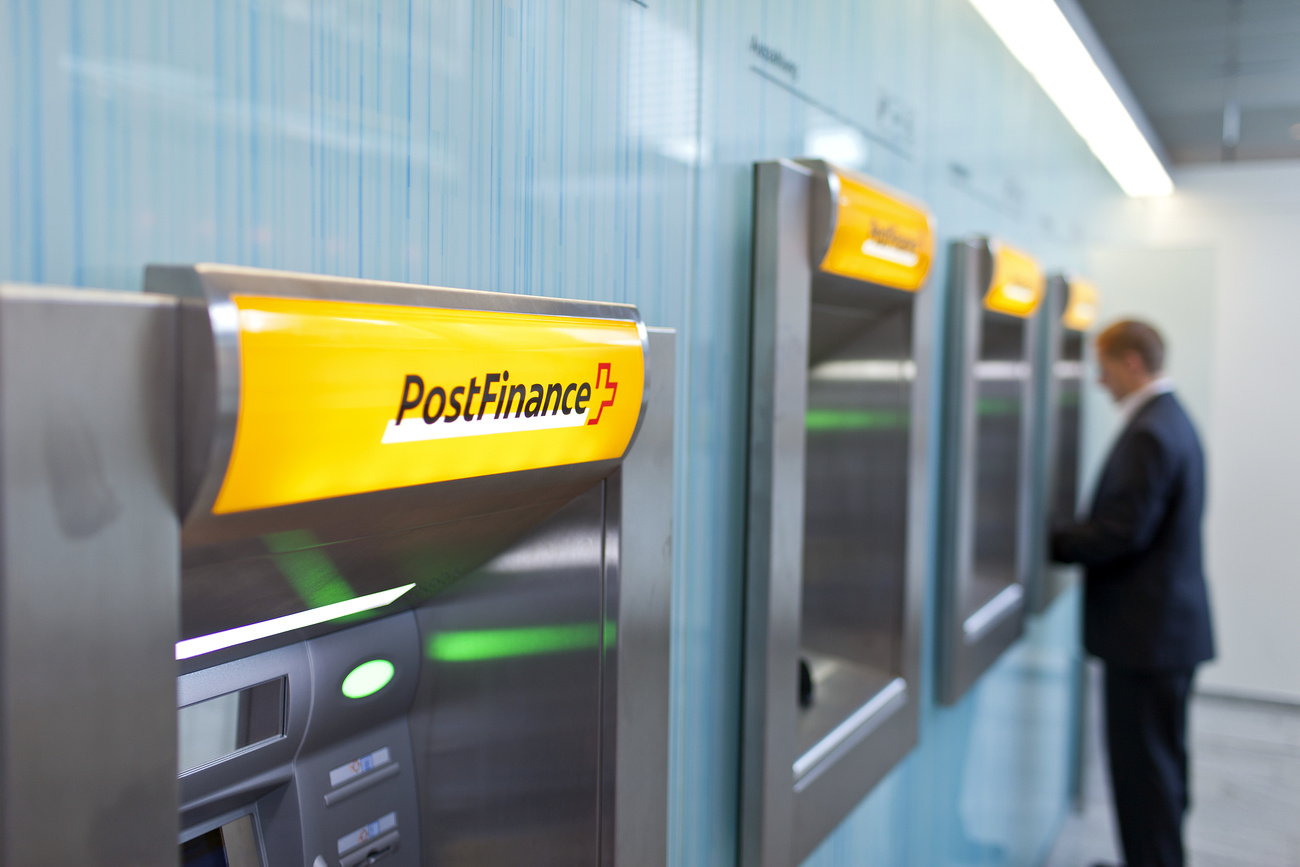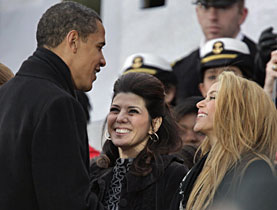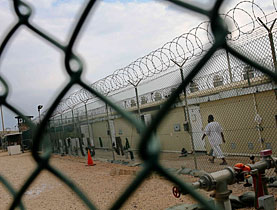Marty calls for collective responsibility on Guantánamo

Dick Marty, a parliamentary member of the Council of Europe, has welcomed the move by United States President Barack Obama to close the Guantánamo Bay detention centre.
The Swiss senator told swissinfo that the “illegal prison” on the Cuban island was a sign of an arbitrary and inefficient policy against terrorism.
Marty said the international community needed to find a humanitarian solution for the camp’s inmates.
The US has come under heavy pressure from Europe to close the prison and while European Union ministers met in late January to discuss ways of relocating Guantánamo detainees, the EU is divided on the issue and no commitments have been made.
Counter-terrorism officials in the US say that one Saudi former detainee has been been elevated to the senior ranks of Al-Qaeda in Yemen following his release. The US believes that as many as 61 of 520 former prisoners have returned to the fight.
swissinfo: What should happen with the more than 200 prisoners at Guantánamo?
Dick Marty: This is a big problem. It reminds me of a story of [Franz] Kafka. People are being detained with absolutely no proof against them. From a legal point of view, they are innocent people, who were abducted from somewhere or other – mostly by Pakistani or Afghan bands – who sold them to the Central Intelligence Agency for $5,000 [SFr4,300].
But over time even the Americans realised that there was nothing that could be put forward against these people. Some of these illegally held detainees were freed. But others had to stay in Guantánamo because they would have been arrested and tortured in their home countries. It is not acceptable to label these people as terrorists.
If you ask me, it is up to the international community to find a humanitarian solution.
swissinfo: Switzerland and other Western countries have offered to take in Guantánamo prisoners. But isn’t really this is a purely American problem?
D.M.: No, not at all. The anti-terror war that was created by the Bush administration was carried out in cooperation with practically every country, with varying degrees of conviction. But it was certainly tolerated. Now there has to be a collective responsibility.
swissinfo: To what extent did Switzerland support the anti-terrorism war?
D.M.: Switzerland allowed CIA aircraft to cross over Swiss territory. No one was interested to know what these flights were all about.
If we want to remain true to our humanitarian tradition, we have to offer our support. I am glad that the Swiss government has now made this step.
swissinfo: What will happen to the detainees who are not liberated because they are still under suspician?
D.M.: The Obama administration will have an enormous problem with that. How can these people be treated according to law when people know that the evidence against them was forced [from them] with torture and illegal means? Such evidence is unusable in every civilised country.
swissinfo: Switzerland rejected asylum requests from three Guantánamo detainees in November. Now all of a sudden the country says it is considering accepting such requests. Isn’t that inconsistent?
D.M.: One could say that first an administrative body – in this case, the Federal Migration Office – made the decision, and now the supreme political body has made its decision.
I would have been happy when this decision would have been made in the first place, without waiting for the new US administration.
Every day that goes by is one more during which people who are not guilty have to sit it out in an illegal prison. People who have a feeling for justice must have reservations about that kind of situation.
swissinfo: A number of critics, among them cantons, have warned against accepting anyone because of a possible danger for Switzerland. Isn’t there a risk?
D.M.: Let’s assume that I would land in a psychiatric clinic because I was mistaken for someone else or there was a false diagnosis. And then, all of a sudden, the doctors said: “This man doesn’t belong here, we have to release him.” And I get out. Then everyone will say that I was mad and sick because I had been in psychiatric treatment.
I find such reactions outrageous in a country with a constitution.
swissinfo: So you don’t see any risks for Switzerland?
D.M.: Who can be credible by saying that the security of Switzerland or the cantons is endangered if we accept three people from Guantánamo?
This is what disturbs me. I ask you to consider this: If it were a case of three billionaires from Russia suspected of links to the mafia, we would accept these people.
swissinfo: You made an appeal at the Council of Europe for the truth about the secret CIA prisons finally to come out into the open. Is this an appeal to the new US president or to Europe?
D.M.: It’s appeal to everyone. The US has already made an important step by admitting that Guantánamo is illegal and that there are illegal prisons that have to be closed.
Europeans have to make the next step. They must admit that they cooperated in the name of Nato. Every Nato member did its share. Today you can no longer just talk of “state secret”.
All governments are duty bound to tell the whole truth or at least search for it. Truth is the most precious commodity in a democracy.
swissinfo: What expectations do you otherwise have in the new US president regarding the fight against terrorism?
D.M.: I would like him to combat terrorism efficiently and cleanly, and also take a look at the political circumstances that promote this terror. In this area I would expect real international cooperation among all countries.
In the previous US administration all the important decisions were taken by the CIA – the others [countries] only gave assistance.
In addition the US must also become a member of the International Criminal Court. Until now, the US has refused to do this, as have Russia, China and Israel.
swissinfo-interview: Gaby Ochsenbein
The first prisoners arrived at the Guantánamo Bay naval base in Cuba on January 11, 2002.
About 800 prisoners have been detained there altogether.
At the end of 2008, there were 250 detainees from 30 countries. About 100 are from Yemen.
About 60 prisoners may face persecution, torture or arbitrary imprisonment in their home countries. They are from China, Libya, Russia, Syria, Tunisia or Uzbekistan.
From January 22 to January 29, swissinfo asked readers whether Switzerland should accept former Guantánamo prisoners.
423 people took part in the informal poll.
124 (29%) said “yes”
271 (64%) said “no”
28 (7%) were undecided
Marty was appointed by the Council of Europe in November 2005 to investigate claims that the CIA had set up secret prisons in Eastern Europe.
In his initial report, published in June 2006, he concluded that 14 European countries had colluded with the US in a “spider’s web” of human rights abuses.
Marty said other countries, including Switzerland, had been involved actively or passively in the detention or transfer of unknown persons.
On November 10, 2007 Marty was awarded the top prize by the Swiss branch of the International Society for Human Rights.

In compliance with the JTI standards
More: SWI swissinfo.ch certified by the Journalism Trust Initiative












You can find an overview of ongoing debates with our journalists here . Please join us!
If you want to start a conversation about a topic raised in this article or want to report factual errors, email us at english@swissinfo.ch.